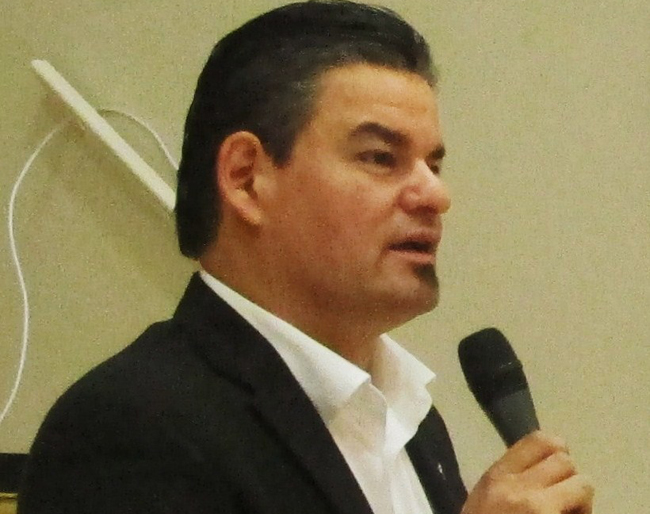Serpent River seeks sustainable development
SERPENT RIVER FN – This North Shore community’s first-ever Lands and Economy Summit Oct. 22-24 was a first step in calling government partners forward to define the concept of Sustainable Development.
“An understanding must be reached by all parties regarding projects, policy and development to achieve positive triple-bottom line outcomes of Land, People and Economy,” said Chief Isadore Day, Windawtegawinini, noting that the First Nation’s Economic Development Corporation has identified as a priority the establishment of a Centre for Sustainable Development (CSD).
“There are many opportunities that exist for government-to-government dialogue and advancement on new approaches (to development) where First Nation jurisdiction is achieved through collaborative efforts,” he said, calling for “collaboration based on inherent and treaty rights”.
Chief Day says First Nations must have a “seat at the table” in discussions about “what types of development should or should not happen in our territory.”
“Governments have viewed us as not having jurisdiction (authority) or legitimate discretion in decisions about resource development.”
He sees initiatives like the Centre for Sustainable Development as a tool for Serpent River to achieve Nationhood with confidence, stability, and strength.
“For such a long time, we’ve had misconceptions of one another,” Chief Day told an audience of community members, government and private sector partners., and potential stakeholders, noting in a webcast that “the Summit gave us tangible results and we are taking a huge step forward.”
One of the Summit participants, Gilles Brunet a project officer in land planning and management from Indian and Northern Affairs Canada, presented Serpent River with a letter of approval for funding for the new CSD.
“This is history in the making, I am proud to be a part of it,” Brunet said.
Other participants included representatives from several Serpent River partners in business development.
Khetan Bhalla, CEO from Jazz Solar Energy, said Serpent River is one of his company’s 24 First Nation partners.
“First Nations are ideal partners for the province for long-range energy needs,” he said, referencing a Serpent River solar project he estimates will produce a revenue stream between $200,000 and $300,000 over the life of the contract. Current installation projects are roof-mounted, and a ground-mount feasibility study is underway.
In response to a community member’s question, Bhalla said the partners are investigating options to overcome the absence of transmission lines on the First Nation.
Gintas Kamaitis from Aquaculture Consulting Services said a proposed aquaculture development in Serpent River has the potential of farming 4,000 tons of fish annually.
The fish-farming industry is growing about 10 per cent a year, he told the summit, and most of the water in the northeast part of the province with ideal sites for fish farming are in First Nation territories. The Serpent River project has been in the works for about three years, and three potential sites for fish farming and a processing plant have been identified.
“The conditions are excellent for growing trout here.”


